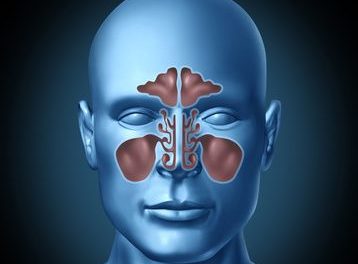 Diseases are usually defined by their symptoms. If your sinuses become stuffy, your nose runs and you begin coughing and sneezing for a week or two, you have a cold. If you have coughing, runny and stuffy nose, a general, sick feeling (malaise), red eyes with tearing (conjunctivitis), and a fever, and these symptoms are followed by Koplik’s spots in the mouth, you have measles. It serves us well enough to consider symptoms when defining disease, but in some instances it may be better to think of the mechanism, especially when considering vague and chronic health problems. Take irritable bowel syndrome (IBS) for example, we give this diagnosis when a patient has gas, bloating, diarrhea and abdominal pain (but no other “named” disease).
Diseases are usually defined by their symptoms. If your sinuses become stuffy, your nose runs and you begin coughing and sneezing for a week or two, you have a cold. If you have coughing, runny and stuffy nose, a general, sick feeling (malaise), red eyes with tearing (conjunctivitis), and a fever, and these symptoms are followed by Koplik’s spots in the mouth, you have measles. It serves us well enough to consider symptoms when defining disease, but in some instances it may be better to think of the mechanism, especially when considering vague and chronic health problems. Take irritable bowel syndrome (IBS) for example, we give this diagnosis when a patient has gas, bloating, diarrhea and abdominal pain (but no other “named” disease).
When we look at research studying IBS, we find that a number of things offer relief to some of the patients–but not all of them. A couple of studies (JAMA Aug 18, 2004; American Journal of Gastroenterology December, 2000) found a connection between small intestine bacterial overgrowth and IBS. Killing bacteria improved the symptoms in many of the patients, but not all of them. Other studies looked at food allergy, and similarly, some of the patients improved on allergy elimination diets, but not all of them. Other studies show that some, but not all, IBS patients improve.
Clearly not all cases of IBS are the same. Different patients with IBS may all have different etiologies for their particular set of symptoms. Many patients with chronic complaints like MS, ADHD, autism, fibromyalgia and other health problems that seem to confound doctors get results with some natural therapies, but not with others. Elaine Gottschall’s diet works for some Crohn’s disease patients, but not all of them. This demonstrates one advantage practitioners of natural health care have over medicine. They treat the patient who has the disease rather than treating the disease that has the patient.





